The Multiplier Effect: Funding Companies, Ecosystems, and the Future of the UK
How do we solve the UK’s persistent scale-up capital conundrum and move from academic theory to commercial reality?
Host Susannah de Jager speaks with Pete Davies, Partner and Head of Developed Markets Strategy at Lansdowne Partners and co-founder of Oxford Science Enterprises (OSE). A rare investor known for his consistent yet evolving approach, he has helped refocus the firm to long-only and venture capital strategies, including the launch of a new UK Growth Fund focused on scale-up opportunities. Pete is a pioneer in UK venture, co-founding Oxford Science Enterprises (OSE), and is a leading voice in conversations demanding scale-up capital for the UK. He is also a former governor of the Wellcome Trust.
Pete shares his unique, contrarian perspective, spanning decades of experience in asset management and pioneering UK venture.This episode delves into the linear evolution of deep tech commercialisation, from IP Group to the creation of OSE.
Pete discusses the critical need to shift company formation from an "academic X has an IP" push to an industry problem-driven pull, noting that this process is now at a "sort of halfway stage". The conversation also covers the importance of "magic" assets like the Oxford community, the exciting progress in areas like quantum computing, and how to fix the £100 million 'missing middle' of scale-up funding. With the UK seeing a 36% year-on-year rise in new tech incorporations, Pete explains why closing this capital gap is crucial for transforming the nation's medium-term economic growth prospects.
[00:00:01] Susannah de Jager: Welcome to Oxford+. The podcast series for innovators and investors brought to you in partnership with Mishcon de Reya.
Hi, I'm Susannah de Jager and I'm the host of Oxford Plus. My guest today is Pete Davies. Pete is Head of Developed Market Strategy at Lansdowne Partners, a firm he joined in 2001. Pete is that rare investor who has kept his approach consistent while refusing to be defined by market terms. A strength demonstrated in the hedge fund strategy that for many years was a sector defining long short fund and the refocus of the firm to long only and venture capital based upon the opportunities identified by Pete and the team.
In UK venture, he has been a pioneer creating and co-founding a number of venture businesses, most notably for this podcast, Oxford Science Enterprises, the investment company that develops and advises the commercialization of the IP of the University of Oxford. He has also been a governor of the Wellcome Trust and a leading voice in the UK private public market conversations actioning the much needed call for scale up capital.
Over the last four years, I've had the privilege to discuss the UK scale up capital conundrum with Pete at various intervals, and I'm very much looking forward to this latest update today. He brings two perspectives. First, as an asset manager launching a new strategy into the venture space, but also as somebody passionate about the broader UK opportunity and Oxford itself.
Pete, thank you so much for joining today.
[00:01:31] Pete Davies: My pleasure. Very much looking forward to.
[00:01:34] Susannah de Jager: You were a student at Oxford, and then you started your career in listed asset management at Mercury Asset Management. What made you turn back towards Oxford and think, I want to use my investor lens at the university.
[00:01:51] Pete Davies: I think it was fairly routine actually in that, subsequently thought about it a bit more in with a strategy, but at the time I think it was more just looking for investment opportunities. I mean, my broad view had been for a while the UK is very unusual in having lots of its most relevant, world-class assets, not necessarily being thought of or being either companies or being thought of as economic ones and probably the first of those was actually football clubs and that probably taught me the idea that one can invest in these world class assets, and so from there I kind of looked at individual companies within the Oxford ecosystem. You know, obviously IP Group was a pioneer in this, that I was partially involved with, and it just gradually grew from there. There was very little of a plan, I'm afraid
[00:02:37] Susannah de Jager: No, but that's often the way it really happens in reality and you talked there about IP Group, and obviously they were one of the first movers in this space. You were obviously an early investor in that company.
How did it evolve from that to the germination of the plan for Oxford Science Enterprises?
[00:02:54] Pete Davies: Pretty linearly and I should give enormous credit here to Graham Richards who sadly passed away recently, who frankly without whom the IP Group relationship with the chemistry department wouldn't have happened, which in turn enabled the OSE agreement. I mean, it was pretty similar to a publishing deal of an advance from IP Group to the chemistry department to build a facility in return for a partnership around building companies out of that facility. That deal was, as I say, led by Graham and Dave Norwood, and then OSE flowed very linearly from that because at the point of time where that deal was beginning to come towards its end the OSE deal was a replication of the IP group deal with the chemistry department across a broader remit. That deal was coming towards the end and lots of versions of how it could have been structured, but the basic structure was pretty much in place already.
[00:03:43] Susannah de Jager: You talked there about how it felt very natural in the evolution in the space from football clubs looking at the IPGroup and into OSE. Is it equally apparent to you, therefore, when you look forward to the next five or 10 years, how you see that space evolving? O
r do you see that there are multiple ways that it might play out?
[00:04:02] Pete Davies: That's a great question. and I think I should stress that the evolution of structures is very different from the evolution of process. I think the structural evolution was fairly linear. But equally, I think the process of actually converting that into individual companies is always very individual.
I certainly wouldn't want to put a universal way of doing that as being something that always works. So let's separate out the structures from theprocess.
In terms of the structures, I mean, I think my hope would be that the structures were there to accelerate to a point where you don't need the structures, if you see what I mean. I'm not sure exactly where we get to, but you know, I think the dream for all of us would be an ecosystem with so many individual parts, all of whom are doing interesting things and fresh approaches. You know, there'll be lots of successful companies including OSE I'm sure within that ecosystem. But I think the idea of an external structure for that hopefully will prove necessary.
I think the second aspect I'd say is more around how the companies originate. One thing that I've always hoped would be, broadly speaking, the process of originating companies has been academic X has done piece of work that they think is commercially relevant and someone, be it the Tech Translation Office, or OSE or anyone else, essentially is presented with that business model and decides whether to invest and how to amplify that.
The goal which we're at a sort of halfway stage at, I think within OSE, within the use of entrepreneurs in residence ought to be much more that there's an expertise within the academic community and a problem that someone externally is trying to solve and actually the process of, I wouldn't even call it packaging, but the process of turning the expertise into a solution for the problem is much more a questioning between investors and academics rather than something just coming from the academics. So I think that's the other thing I would say that will change over time is I suspect more and more it'll be problem driven rather than IP driven companies being sorted out.
And then the third thing I think would be also one shifts from just academic IP to the broad expertise of Oxford. I mean, including the undergraduate community. View the ecosystem as creating companies across the watch. Not just from very deep academic technology, but from all the innovation andcreativity that comes from the ecosystem. So those three would be my main structural things.
[00:06:18] Susannah de Jager: I think it's really interesting that you've identified there that shift from push effectively from the academic to more of a pull from industry, business, and that collaboration.
Obviously Oxford itself is a crucible of learning innovation. But sometimes, and I think that this almost speaks to some of the differences that are observed, it's not compared still that favorably with Silicon Valley. Which is seen as more outward looking in this regard.
I'd love to know what these specific areas you are, where you think actually that's a bit overplayed and Oxford really is excelling because I certainly perceive those, but you are obviously investing in them.
[00:06:56] Pete Davies: I think there's definitely a generational shift going on amongst the academic community.
I think that was already happening and probably was a precondition of setting up things like OSE, led by the likes of Graham, et cetera. But now it's pretty universal, I think. I think few people who go into academia think of themselves as solely academics and I think maybe the UK's 5, 10 years behind America in that, but it definitely doesn't feel it now.
And then I think the other thing is just time. You know, you look back at the formation of Silicon Valley, it took three or four generations of success and the reinvestment of both the financial and the intellectual capital to get to where it is now.
Oxford is probably in generation one or two of that, and each generation does things better than the prior generation and certainly, I'm sure the people who look at what we were doing 10, 15 years ago in 20 years time will think that we were terribly amateurish about it and will have thought of lots of ways of doing it that we never thought of.
[00:07:48] Susannah de Jager: Going into some specifics, you touched there upon quantum computing. I'd love to just touch on some of the specific opportunities both that you've had recently, but also to give some color to what you see is coming down the pipeline.
[00:08:02] Pete Davies: Yeah, you described push a moment ago, and I definitely agree with that. I think, one learning from this that I think one could apply also to some of the genomic expertise that we have and some of the healthcare data, and I'm sure others is that, had the National Quantum Institute not been funded in Oxford, I doubt we would have the opportunity we have today.
I think when one looks at where academic strengths are formed, I think those sort of institutions have got a very high hit rate and probably represent the best value for money and the Quantum Institute would be one great example of that. I know for instance, Chris Ballance, the CEO of Oxford Ionics explicitly will say that had it not been for that, he would've been working in Switzerland. I think going to how academia becomes more problem driven, I think that lesson that the really base academia in long-term areas gathered together can create an expertise that then pans out in lots of ways is really important.
The quantum example is a very good one. Given that, as you say, what we see is actually both individual companies that are now being valued on a global basis, having come out of that ecosystem, but importantly, I think what you're seeing in the quantum world is there are different theologies almost about how to do quantum and actually what's really interesting is the two leading quantum companies that we've invested in so far from Oxford have had very different ideologies about how to do quantum. And I think that's comes from the way in which they were formed, namely a bunch of academics who don't work as a single team, but work in a single place.
Personally, I think it's very, very likely that we're less than five years away from quantum computing being demonstrably superior in some areas to classical computing. That obviously ought to be exponential after it's happened and clearly the value of compute is now much more obvious than it was when we first invested in computing given what's going on in the classical space.
I think what's so interesting about quantum, aside from its processing power is the way in which quantum computers will be used and the sort of operating systems and applications that go alongside them is evolving very fast and perhaps will vary with different industries.
So definitely if you ask me what am I on the lookout for, it's a question of I still think there's a ton of progress to be made in terms of the hardware and the systems proving themselves. But long term, you've got to assume that if quantum computing is a platform, there will be software layers and application layers that create huge investment opportunities where the linkage between the hardware and the software could go in a range of different ways and certainly that's where our work is going up there.
[00:10:41] Susannah de Jager: Really interesting.
You spoke there obviously about the specifics of institutions that are set up to harbor expertise, so quantum computing. But you and I have also spoken about community in the wider sense and the things that Oxford does have in spades like pubs and I say this somewhat flippantly, but I don't really, cause you were talking about Graham there, Dave Norwood, you know yourself, myself very proud member of the Inklings. The group, which led by Dave Norwood during COVID, stepped into help save the Lamb and Flag, and it's that kind of soft side of Oxford that I think people that aren't part of it can feel so intangible. It's hard to appreciate the value, and I'd love to hear it from your perspective because it is so hard to grasp.
[00:11:29] Pete Davies: Yeah, I probably shouldn't say this in a podcast, but my parting shot to my last OSE board meeting was to remind them to retain the magic as well as the structure. For all of us, especially in the current world, magic is a really important thing. And certainly for me and you and Dave and everyone else who got involved with the Lamb and Flag, what was striking was the number of people who just said it was obviously important. They didn't really try to define why it was important. They just said it's really obvious that it's important. If I tried to sort of narrow it down a bit.One is, the impact that time within the ecosystem has on people as individuals is a real value, not always positive, I'm sure, and different for different people. But I think the human impact on individuals and their lives is a very rare thing that Oxford has and things that are very rare and very valuable, I think do need to be cherished generally. Frankly, I think also get more economically valuable as they become rarer in a digital age. And so, I think there's definitely a value that's growing there.
I think the second question then is okay, how do you preserve that? I mean, my worry has always been with universities or nonprofit making institutions is it's very hard for them to retain their unique assets if they're not able to reinvest. If you said basically what have we tried to do on the research side, it's ensure that via the commercialization of some of these product projects enough capital goes back into reinvesting in them to retain the long-term intellectual expertise. I think the same is true of the magic and you know, it's great for instance that, a different cohort, has seen the value within the Eagle and Child and probably with different budgetary constraints and different plans.
The broad question I'd pose is if the magic is as valuable as we all think at the moment, it's similar to perhaps where we were 20 years ago with IP Group. It's only a few people who are choosing to invest in that and see that the probability is that the investment in that magic should be thought of a bit more consciously and aim to be proliferated in the same way that hopefully what we're doing on the research side is proliferating things.
And then to the third thing, and I clearly am not involved with running the university in any form.
But I would say that, the two,unique assets Oxford or any university does, one is the research that we talk about a lot, but the other is the teaching. Certainly for me, one of the frustrations of the way in which tuition fees were imposed was in many ways it didn't allow the value of the teaching to be adequately reflected. The undergraduate experience within Oxford is one of the most valuable things in the world.
And the tutorial system, I think certainly in my case, is formative in a way that's just other universities are finding increasingly hard to replicate. And again, critically is something where digital connections, almost the very failure of digital connections makes it more valuable.
How to address it is politically much more difficult. But there is the risk that if you don't value it properly, economically, it becomes very difficult to sustain. I think that's probably where I end up, albeit, I think magic is a nicer term than teaching to think about it.
[00:14:36] Susannah de Jager: I think that's exceptionally interesting and you've strung together quite a few things there, but hearing you explain the logic between them one does see these gaps. I only last week was at the launch of Oxford North, which is this amazing new science innovation center that's a JV between Ontario Teacher's Pension Plan, St. John's Oxford, Thomas White, which is their development company.
What's amazing is the benefit of places like science parks have become so evident and you are identifying this gap still where there are other, as you say, magical elements that almost need to be priced correctly in the ecosystem as we go forward.
[00:15:18] Pete Davies: I'm pretty confident that the way in which ecosystems evolve probably gets led by investment in science parks and labs initially. But, you know, they create both wealth and investment and a set of businesses around that and employment around that. You are seeing, I think already, I was talking to someone the other day who was thinking about a major property development within the center of Oxford. That was very much saying, look, an ecosystem that's more dynamic, there aren't sufficient hotels, et cetera, et cetera, restaurants, pubs.
So, one thing that's been really interesting to me has been watching the multiplier effect in action has brought it alive a lot more clearly than anything I did in economics and you know, you see that if you fund a lot of companies, they need a lot of lab space. The lab space needs new science parks, there are more meetings and therefore more hotel rooms needed. The multiplier effect of company formation to me you know, Oxford is a great case study of that. That is only in the very early stages of that.
[00:16:14] Susannah de Jager: So you've obviously touched upon the Eagle of Child and you've spoken about the investment. The Ellison Institute of Technology, which is the new owner of the Eagle and Child, is this huge new player in the Oxford ecosystem, and it's clearly going to change some of the shape greatly. I'd love to just get your perspective as an investor.
[00:16:36] Pete Davies: I think it's wonderful. I think scale, novelty, and ambition are all things that, you know, should be encouraged wherever. I think if you don't have scale, novelty and ambition, the danger of the ecosystem becoming insular is quite high just given the natural trends. I that they're doing it.
I think for this and for other reasons as far as I can tell, the academic recruitment within Oxford has never been stronger and certainly from a governmental perspective to my mind that basic question of are the world's best academics wanting to work in the UK ought to be one of the highest priorities when one's thinking about long-term growth.
Perhaps in the same way as OSE when it first started, I would imagine if I were within Ellison, going back to my earlier point about structure and practice, practices will undoubtedly iterate and evolve behind what feels like the broad notion, which is to do something at a really high level that hasn't been done before. Converting that into individual targets and projects and working out how they interrelate with the ecosystem, I'm sure will evolve over time and
one of the wonderful things about Oxford is, things are in constant oscillation a bit. It is not something you either could or should put a structure on and say, this is how it's gonna work for the next 50 years because the beauty of both academia and commercial investing at this stage is it is unpredictable and freedom is to be valued. And so I'm super excited about what they're doing. Very keen to see how they look at probably some similar problems to ones we've looked at. They'll definitely have a ton of insights and opportunities that go way beyond what's been done before and that's exactly what should happen.
[00:18:12] Susannah de Jager: I think you're spot on there that people often feel that there should be an answer. That they should have a plan that they're rolling out, whoever it is, whatever business it is, and often the hardest but most honest thing to say is, I'm not sure yet. We are building the plane as we fly it, and that's as it should be because there will be things we don't yet know.
[00:18:30] Pete Davies: Yeah, the flip side of that, which I always, I think again with an OSE we only learn afterwards was doing it better than it's been done before, and doing it better than you were doing it the year before, seems to me a much more reasonable target.
And often, as you say, people want to theorize towards perfection, whereas actually, I certainly would tend towards empirically trying to improve what's, what one's already done is the right way to achieve most. In all forms of life but particularly with an Oxford I would say.
[00:18:58] Susannah de Jager: Yeah, that's an important theme for anyone, whether they're growing their own business or growing the investment business.
It leads us on to another point, which is that the UK itself as a broader ecosystem is also in evolution, and I know that you've been very involved in some of these conversations about capital reforms. You obviously come from a listed equities background, and so therefore the capital markets, which are often reported at the moment, the IPOs, that perceived lack of depth of research.
I'd love to have your view on how you see those things evolving. Because I think too often the news flow, and we can all be guilty of this to a degree, can be quite negative. But again, it's just one of those things from my perspective, that we are a little bit more nascent than the US not that we're not on the right trajectory.
[00:19:46] Pete Davies: When I think about this, there are two separate issues that are related, but that are probably best dealt with individually.
One is the valuation of companies that are listed in the UK and the consequences of that and two is the ability of capital to reach companies for them to invest in. And the two are related, but I think certainly if I were the government, I would focus on the latter rather than the former. So my personal diagnosis, which may well be wrong, is that the reality that UK companies are undervalued and reality that UK listed companies tend to have both a lower valuation and probably a higher hurdle rate for investment is true does have some negative consequences. The global equity market is very concentrated even within the US I suspect if I was talking to a US fund manager, they would say that if you go outside a certain set of companies, other companies are lowly valued.
Certainly it's true of other parts of Europe and Japan and my instinct, and maybe it's just my free markets thing, is personally I just see that as an opportunity that ultimately markets will correct. Clearly for it to correct, you're gonna need political stability within the UK and you're gonna need the companies to perform well.
I don't think the impacts from it a massive at the moment on the economy, and I can't really imagine what governments could do that would sort that out quicker than markets will sort it out beyond just provide a stable ecosystem. And to be fair, if you said what successive governments have failed to do, I would say far more of their failure is to provide a broad stability in economics or politics rather than necessarily an individual view on particular parts of the market. You said why is a discount there? It's cause UK's been incredibly politically volatile for a decade rather than because any particular strategy around listing markets.
I'm not sure in 20 years time we'll have local equity markets. My own instinct is you know, most shares will be traded most of the time and I personally think in the end, London will thrive as a financial center, because of its history, competitive advantages of intellectual capital and time zone and won't be doing it just be trading in companies that happen to have historically been listed here. So may maybe I'm a bit of a heretic on the listed side.
On the growth capital side, where I think there is a very clear issue. I think the way I would characterize it today, and I think hopefully we've been part of solving this, is I tend to think about growth capital in sort of log scale of sort of one, 1 million, 10 million, a hundred million, billion, funding rounds. For a lot of reasons, the UK now is very good at the one in the 10 millionand actually I think now, especially in the current market conditions, the billion dollar raise is a global phenomena where it doesn't really matter where you're listed. Once you get to there, it doesn't really matter where you are.
I think, Oxford's a great example of this, that the platform's being created, like OSE have supported this, all the government tax policy has probably supported the one to 10 million. So I think that's pretty good. I think that a hundred million is the big problem. I think the UK just has a problem. There are lots of examples I could see where companies that are based in the UK are struggling to raise 20 million to grow themselves. Where if they were based in the US they'd be a having access to sort of multiples of that capital and I think that has a real impact on creation. The absence of that scale up capital, is something that's genuinely imperiling economic growth in the UK and is something that governments and the private sector now are trying to address, which is great.
I think if they can successfully address that, one could radically alter medium term growth prospects.
[00:23:20] Susannah de Jager: And to the point you made earlier about increasingly global stock markets, could you not make the same argument here for scale up capital becoming increasingly global and therefore what's the implication if you continue that thought process?
[00:23:37] Pete Davies: I think most of what I would say about anything I think in terms of companies or markets is the maximum I'm capable of is shifting things by a couple of years.
unless something has a chance of happening anyway, capital can't do that much to affect it.
OSE think. has thrived because academics were already ready to do commercializations. If you tried to do it 40 years ago, probably the ecosystem wouldn't have responded to it and similarly with your point on scale up capital. Undoubtedly, if the companies are as good as we think they are. Even with an absence of capital over 5, 10, 15 years, their success and the financial returns from that should be large enough to be globally relevant. So I think you're probably right. Though I would say that I think being early has some value. In terms of where you ultimately end up even allowing for that, just in terms of getting the next generation of entrepreneurs. So I think we'll be in a materially better place if we do it quicker and I genuinely think to accelerate it in the next two or three years, requires some shift in behavior from financial participants in the UK to towards investing more in that area that I think they actually want to do.
I think genuinely when I look at several of these companies, I mean, it goes counter to what one would normally think in finance, but you know, if you said one of the learnings of the last 15 years has been to pay a bit more respect to network effects and scaling laws within companies. IE, that if you are big, you're more likely to stay big. I think definitely I could point to it is strange that normally you would say use as little equity as possible to get to the point, but actually quite often, and sometimes this is attitudinal rather than actual investment. Just I do see examples of companies where if they raise 20 million, they'll probably fail, whereas if they raise a hundred million, they'll probably succeed.
It's slightly counter to basic economic theory, but I think I've seen enough empirical examples of that to say that, you know, more capital today would have a distinct shift in where you ended up even allowing for learning from markets over time.
[00:25:36] Susannah de Jager: Yeah, very interesting.
So Pete, obviously you've been involved in the discussions at that top level. Y
ou've also really taken the mantle forward yourself at Lansdowne Partners in that you are launching a UK Growth Fund, and so you've been both part of the conversation and subject to these discussions.
How has that experience been?
[00:25:57] Pete Davies: Well, we think it's going very well. We're hopefully very near the completion of that process. I think what it's really struck me has been, and why we've stuck at it actually, is that the range of people, and we've only really done it within the UK. We've tried to build an a set of investors in the short term, which is mainly UK oriented with a view that, if we can do that, then over time attracting more global capital could come after that.
I think we've been really struck by the number of people who would like to do it, both in the private and public sectors. You know, actually would like to do it at a scale that certainly our fund would only be a small drop in the ocean for, and if I even put one or two of these investors together, the scale of their desire to invest would be transformative for the whole ecosystem. So I think the very good news is that the number of people who would like to commit substantial capital to that and the range of backgrounds they come from.
In terms of how to do it, the reality is, especially within deep tech, the opportunity that's there from an absence of capital has the downside that it doesn't have a ton of track records of people who've done this successfully and that makes it, there aren't the natural pathways for people to invest. and hopefully my role in this with a degree of trust and expertise and patience is to go through that process such that A, we can deploy some capital, but B, other connections are made that mean capital's deployed in a range of different ways. For instance, I know that OSE themselves now have a much wider range of people they're talking to as potential co-investors than they did a year ago, and similar to us, I suspect they would say that converting that desire to work together, to practice of working together, It takes a bit longer than it one might hope,but I think we're definitely a long way ahead of where we were a year ago.
[00:27:51] Susannah de Jager: I think the point there corresponds with some that you've made in different regards earlier, which is there's the sort of structural elements and then there's the process elements, and what we're talking about here is a group of investors, pension funds, notable among them, but also large investment, insurance companies and government.
Yeah.
[00:28:11] Pete Davies: I mean, I think one of the big positives of the last 12 months is that actually the notion that scale up capital needs supporting is now government orthodoxy and backed up with by significant shifts in allocation of capital from the government at an entity level and again, bit like we're describing, converting desire and entity funding into practical investment now is a bit of a challenge. But that's because it hasn't been done before, so we shouldn't be that surprised.
[00:28:39] Susannah de Jager: Yeah, so the willingness is there, the vectors are being designed by people such as yourself, and then I think the really exciting bit, as you articulate, is that it's not just the quantum of money that comes into a structure such as the one you are launching. It's that education of co-investors who have even more firepower behind them that will be the real kind of multiplier effect in this scenario.
[00:29:02] Pete Davies: Yeah, definitely and actually at an ecosystem level you want people to be experimenting and looking at this in different ways and attracting talent into it such that we can all learn and some form of competition. I think one thing that's perhaps missing in this debate is unless the returns from this process are really good, it's gonna be a very unsustainable thing.
So, I think it's important that we're rigorous in terms of the pricing of this capital. There's every reason to believe the returns on this investment should be amazing given how good the IP is and how little capital there is and those returns being amazing, creates a multiplier. The flip side is also true. If people end up doing this in an ill disciplined fashion will set everything back.
So I think it's really important that you get competitionand also that the financial returns are recognized as the enabler they actually are over the long term.
[00:29:53] Susannah de Jager: It's not an act of charity. It needs to sit within those portfolios, and in fairness, the model is there from the Canadian Pension Plans. It's just making sure we pay the right amount for talent.
[00:30:05] Pete Davies: Yeah, and also, you know, luck will be involved and these things will be non-linear, that one or two big winners will probably accrue rather than 20 small ones is probably the likelihood of this. But the logic is that higher returns equals a ton more volume of capital in generation two of this and that in turn breeds an ambition amongst the entrepreneurs. That in turn will create companies that don't currently exist as well.
[00:30:29] Susannah de Jager: Pete, I wish you all the best with it, for all the reasons we've just described. It's so important that people like you get the opportunity to prove that the results are there and they can be so beneficial to investors and in the meantime, thank you for your time.
[00:30:45] Pete Davies: My pleasure. Thank you very much, and thank you. Also, I should also take the opportunity to say thank you to tons and tons of people within the Oxford ecosystem who've worked far harder than me on these projects. But also being instrumental in helping me learn to think and helping mehave such a wonderful life in terms of finding friends, et cetera.
So, probably too many to thank individually beyond. I should just finish by thanking my tutor, Ralph Walker, who was an inspiration for me and definitely someone without whom I wouldn't be anywhere close to doing any of the things I'm doing now. So that's probably where I should finish.
[00:31:16] Susannah de Jager: Wonderful.
Thanks for listening to this episode of Oxford+, presented by me, Susannah de Jager. If you want to stay up to date with all things Oxford+, please visit our website, oxfordplus.co.uk and sign up for our newsletter so you never miss an update. Oxford+ was made in partnership with Mishcon de Reya and is produced and edited by Story Ninety-Four.


More episodes+
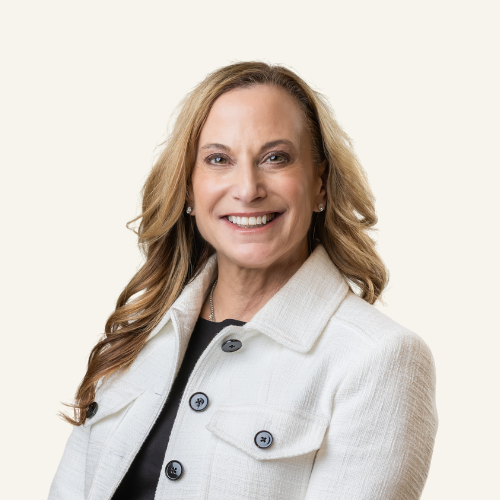
Building a £10 Billion Vision: Inside the Ellison Institute of Technology with Lisa Flashner
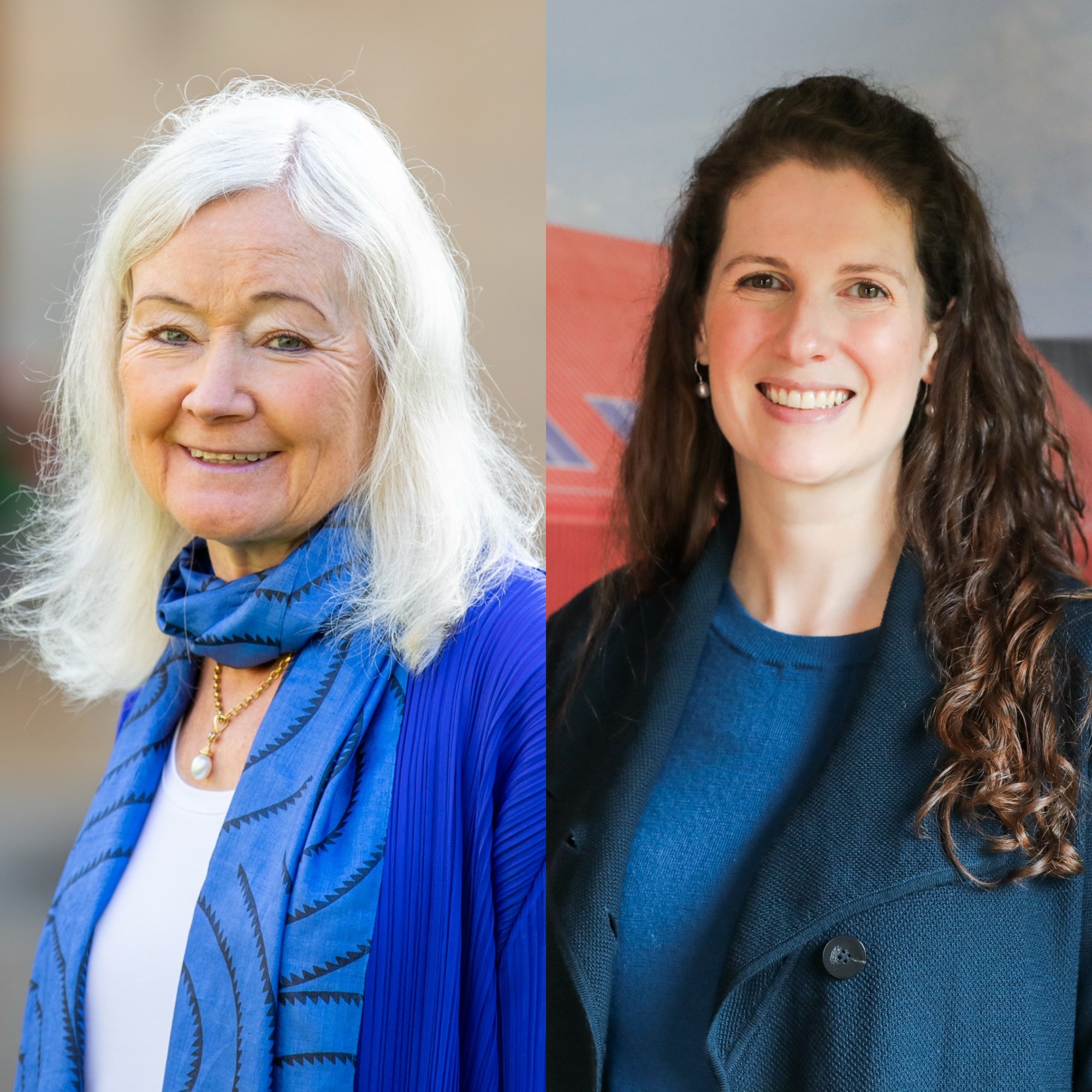
Oxford North: The New Innovation District in Oxford
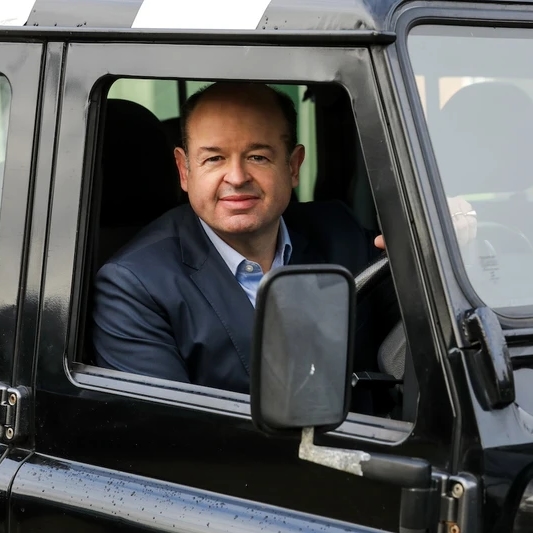
The Cluster Effect: How Bicester Motion is Driving the Future of Mobility
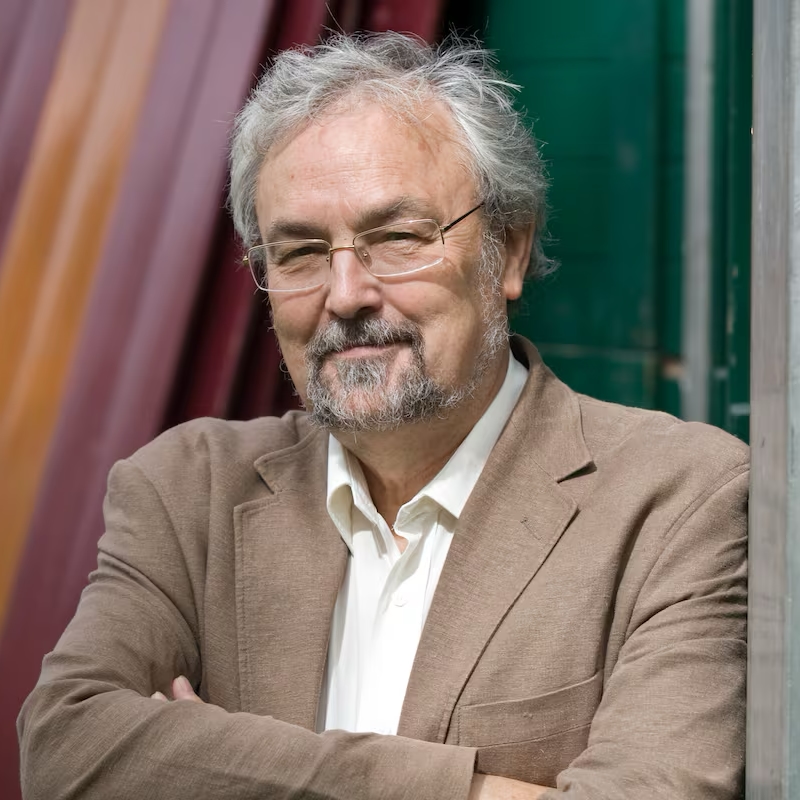
The Psychology of Scaling Companies and Teams with Professor Robin Dunbar: Part 3

The Psychology of Scaling Companies and Teams with Professor Robin Dunbar: Part 2

The Psychology of Scaling Companies and Teams with Professor Robin Dunbar: Part 1

The Future of Genetic Medicine with Zandy Forbes, CEO of MeiraGTx
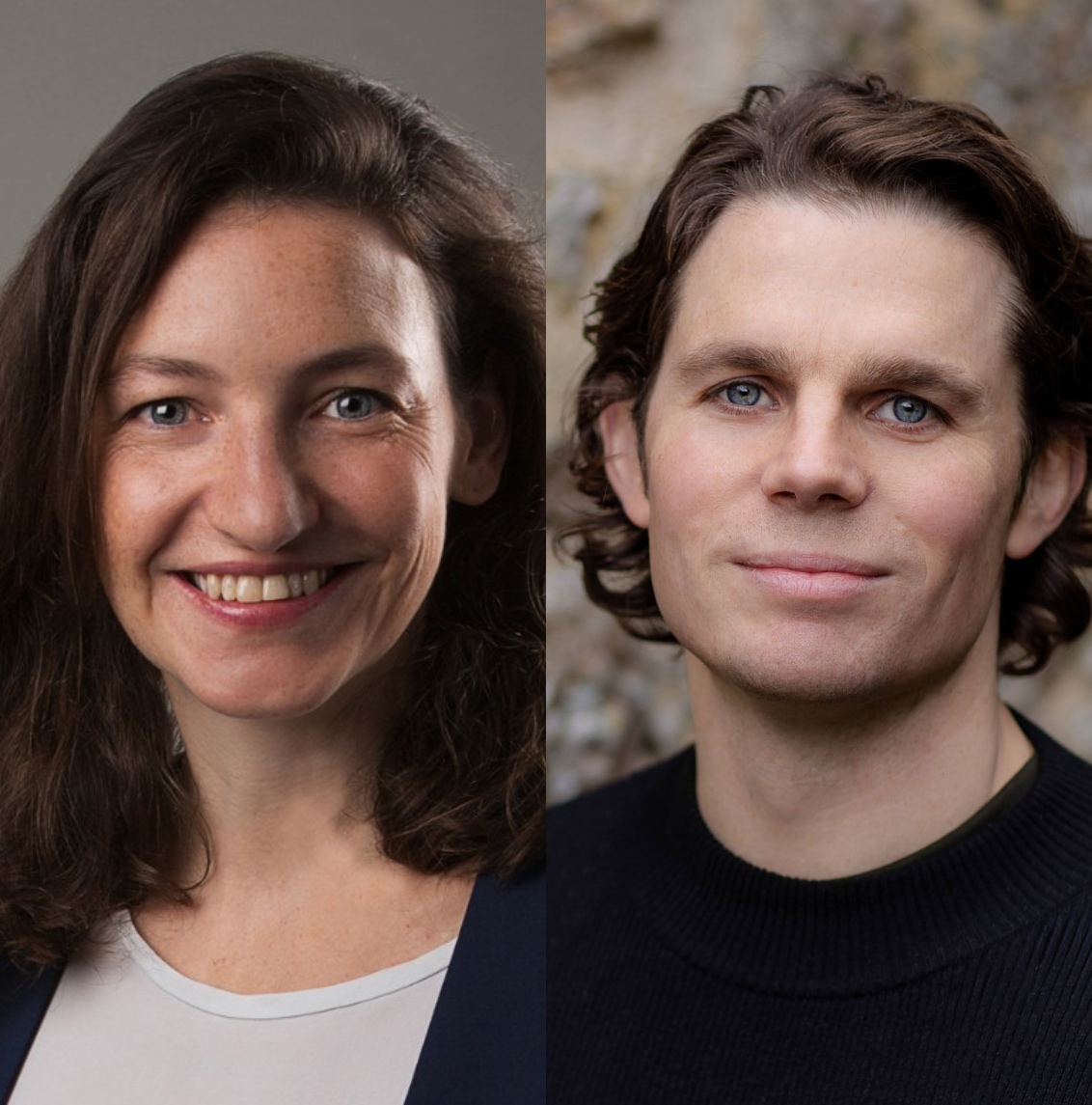
How Founders Pledge Uses Data to Maximise Philanthropic Impact

The Oxford Trust at 40: How Innovation and Education Power Oxford's Future

Can Sirona Rival Ozempic? A New Chapter in Obesity Treatment with Camilla Easter

Aligning Founders and Investors with David Mott

Building Billion-Pound Outcomes with Jack Edmondson

How Machine Learning in Oxford Is Transforming Medicine Worldwide with Lionel Tarassenko

Bringing Science to Society with Molly Stevens

How Oxford University Innovation Bridges Science and Business with Mairi Gibbs
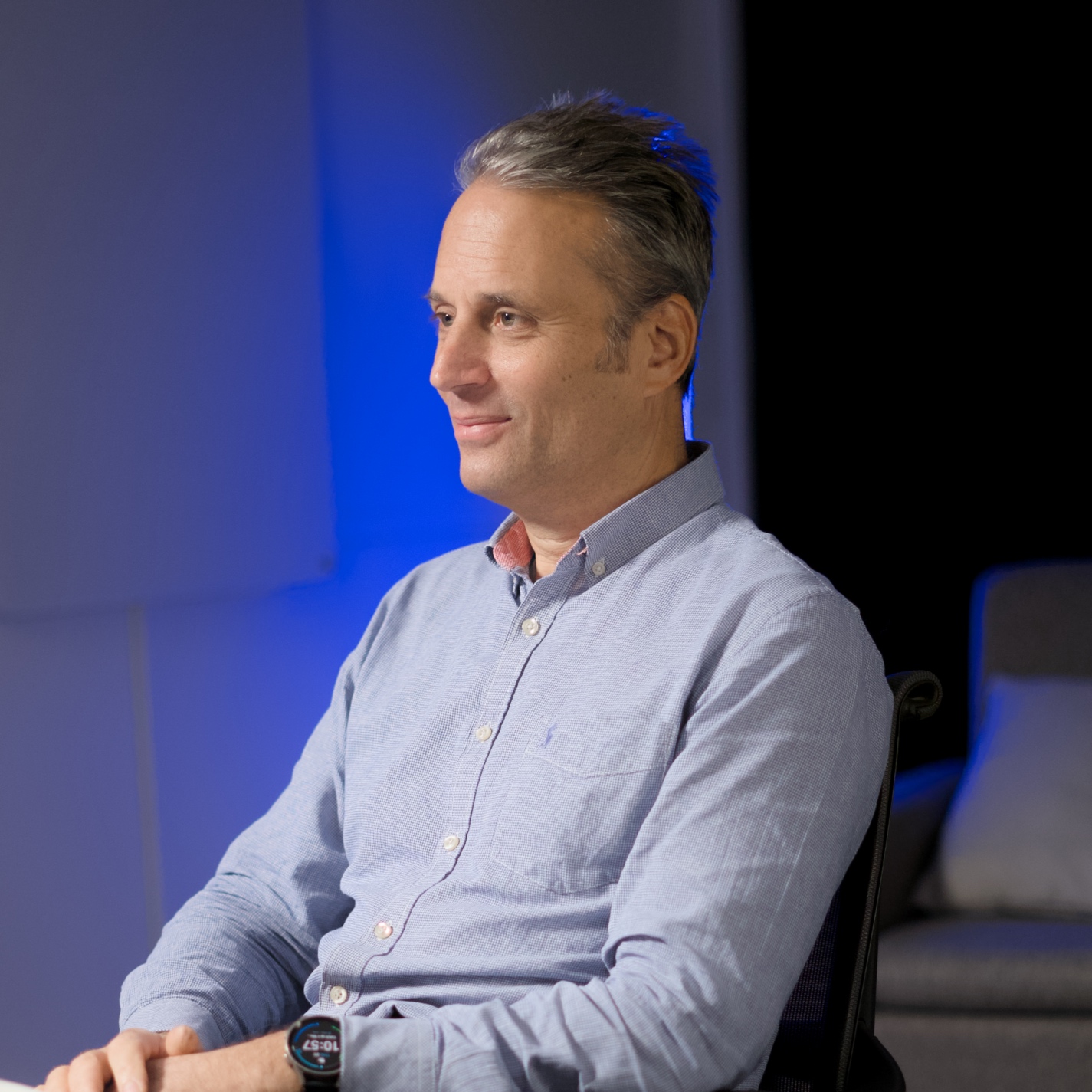
What Formula One Teaches Us About Startups and Success with Adam Parr

Risk and Reward in Early-Stage Tech Investments with George Robinson

Charting Fresh Career Paths with Sue Douglas

From Oxford MBA to Startup CEO with Lily Elsner

Navigating Market Dynamics with Marcus Stuttard

Harnessing Local and Global Talent with Sarah Haywood

Navigating Capital Markets with John Derrick
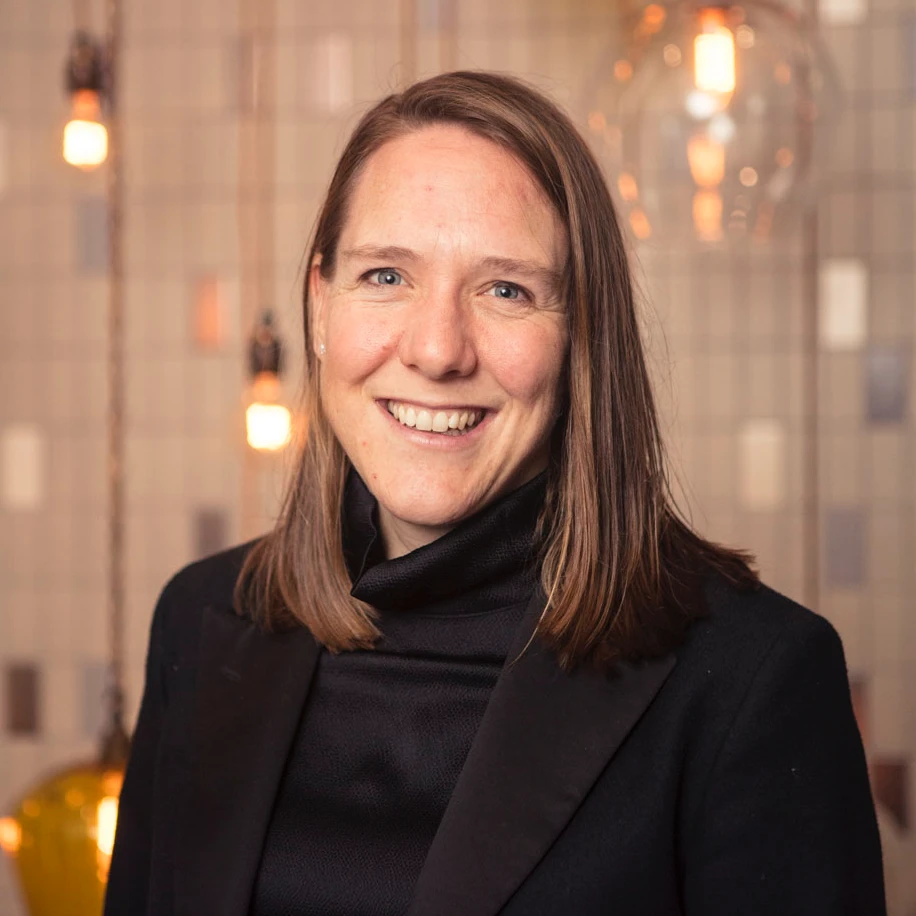
Building Oxford’s Future with Anna Strongman

Breaking the Myths Around University Spin Outs with Irene Tracey

Navigating the Future of Oxford Sciences Enterprises with Ed Bussey

Oxford's Role in the Next Industrial Revolution with Dave Norwood

Diversifying the Investment Ecosystem with Rowan Gardner

Pension Investment and the Mansion House Compact with Nicholas Lyons

Lessons from the Motorsports Cluster with Mark Preston

From Research to Reality with Cici Muldoon

Nurturing Founder-Driven Ventures in Oxford with Peter Crane
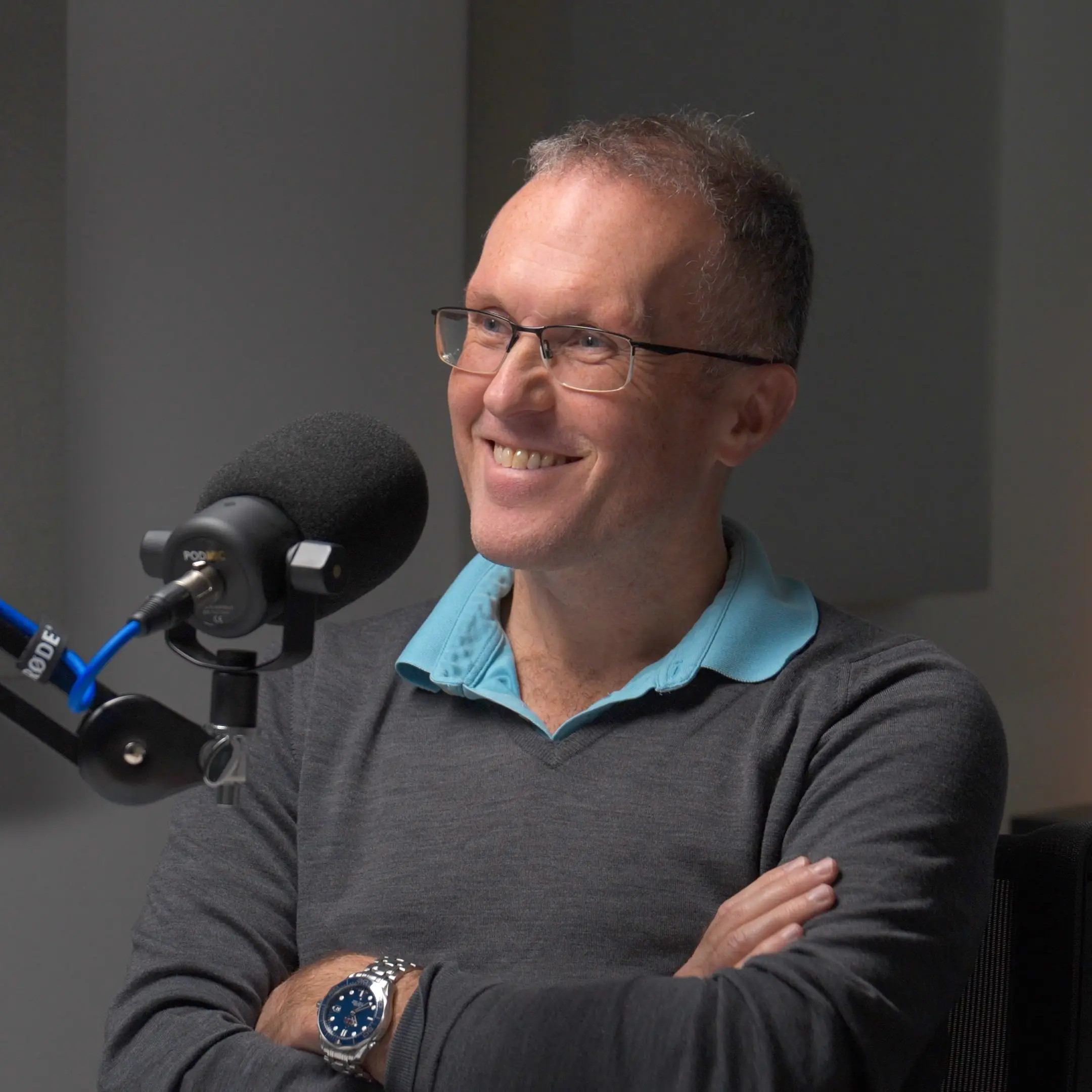

.png)
.png)

